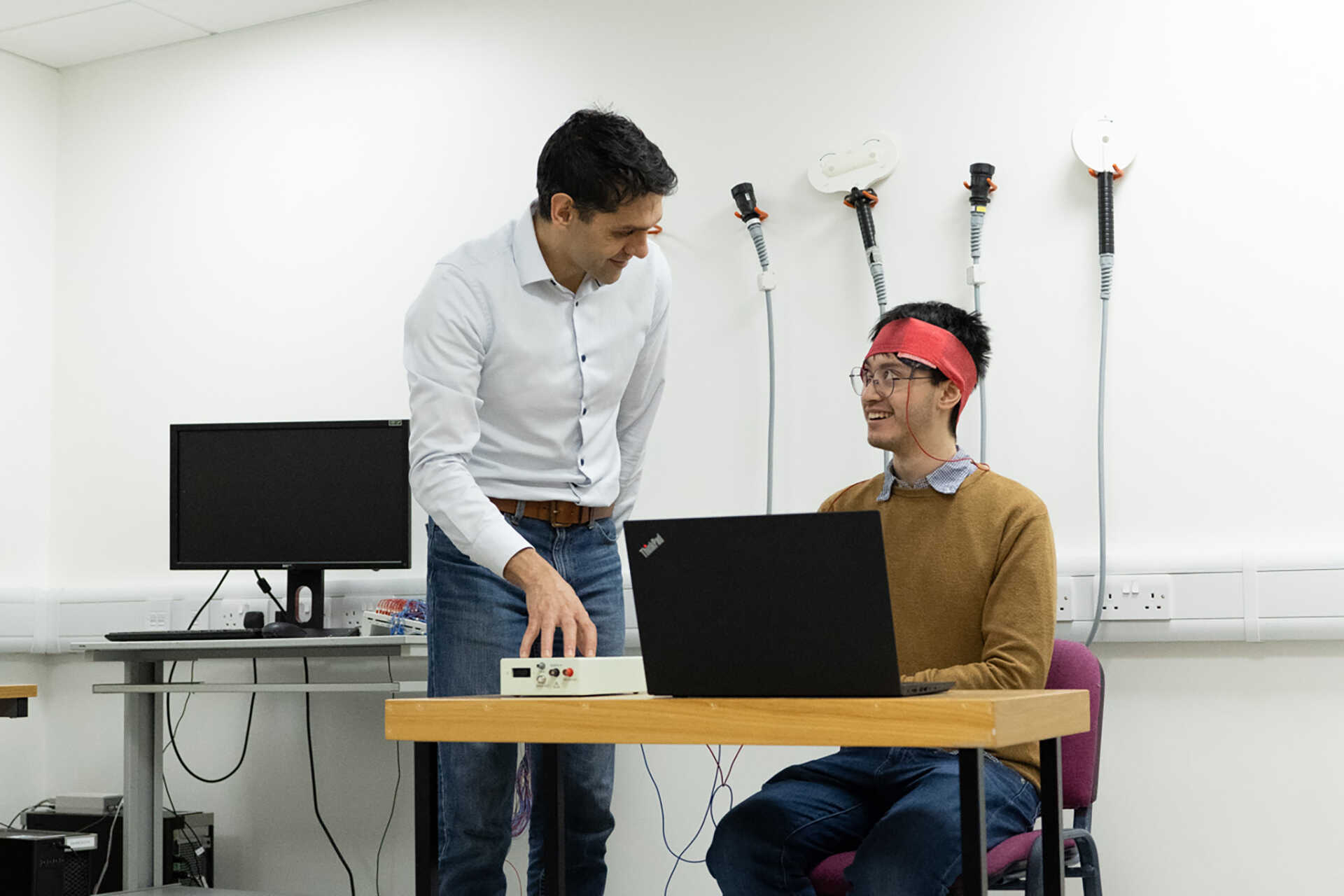
Test your curiosity and ask challenging questions like: how do hormones influence our behaviour? What are friends for? What happens when we die? We will give you the skills and confidence to examine evolution, anatomy, psychology, the behaviour of humans, and our living and fossil primate relatives.
Answer a variety of compelling questions about sex and reproduction, social systems and whether other primates have a language. Gain academic and practical skills that prepare you for careers in the fields of health, science, education, scientific communication, as well as community and social services, among others.
The year abroad extends your degree to a four-year programme and typically allows you to spend a year studying at one of our partner institutions in the US or Canada.
You can also shape your degree outside the classroom with extracurricular activities such as open lectures - attracting global figures and our thriving student-led societies.
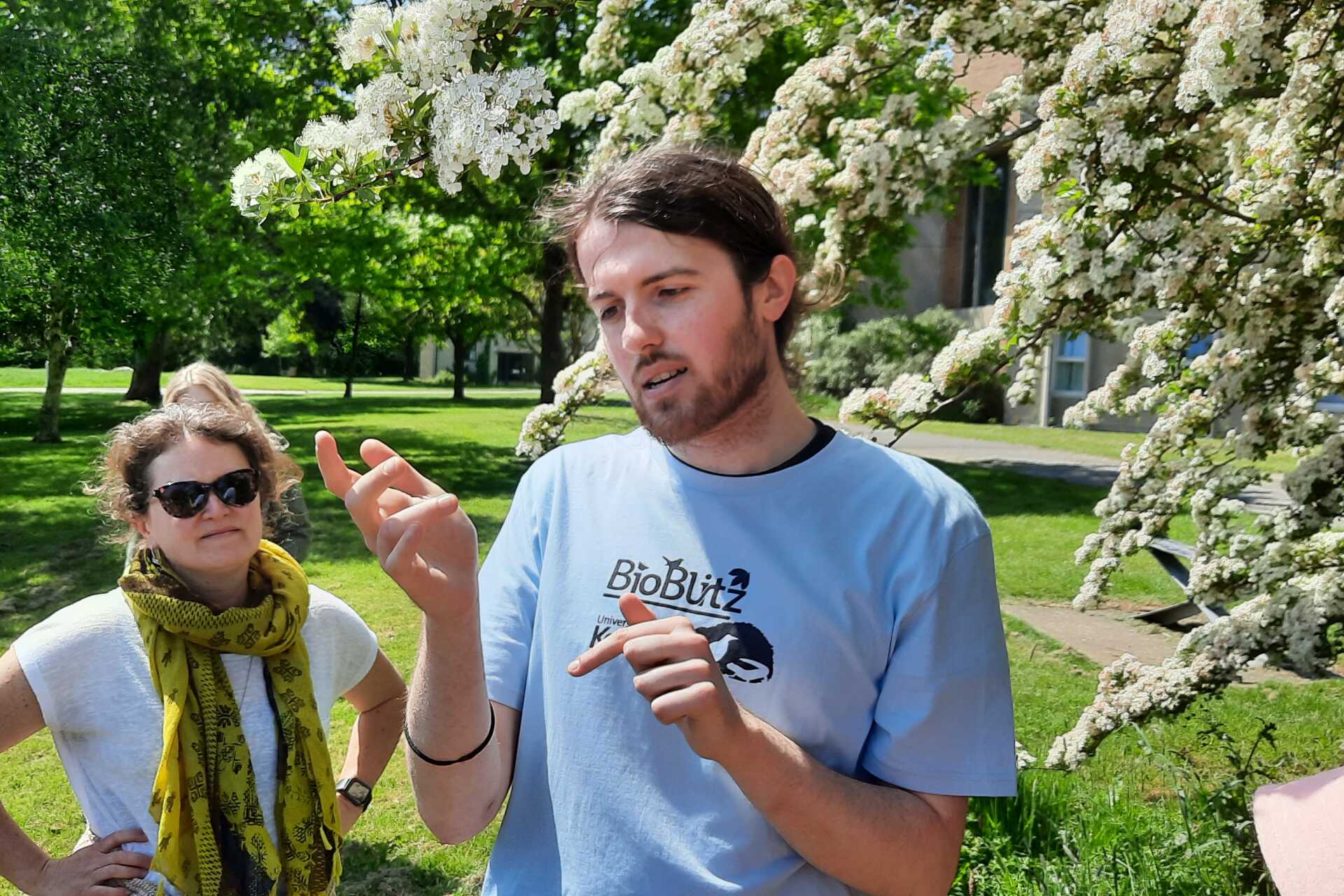
Bring your learning to life with excursions to animal parks, archaeological sites and skeletal collections.
of final-year Anthropology students were satisfied with the quality of teaching on their course in The Guardian University Guide 2023.
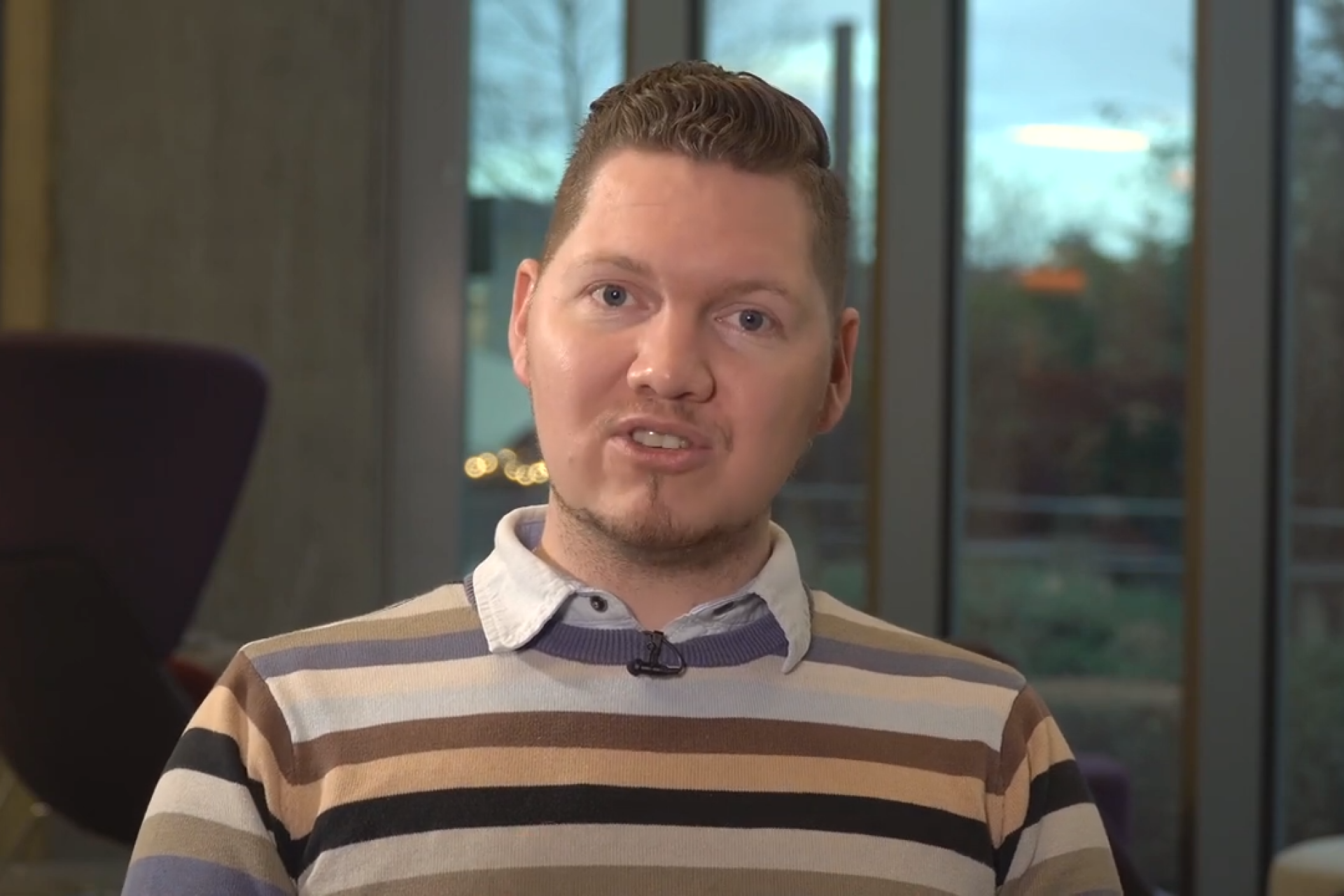
Dr Devin Finaughty explains how you receive a broad foundation in the subject before focusing your studies.
Excellent staff-student ratio, regular workshops and alumni talks, dedicated academic advisors and a peer mentoring scheme.
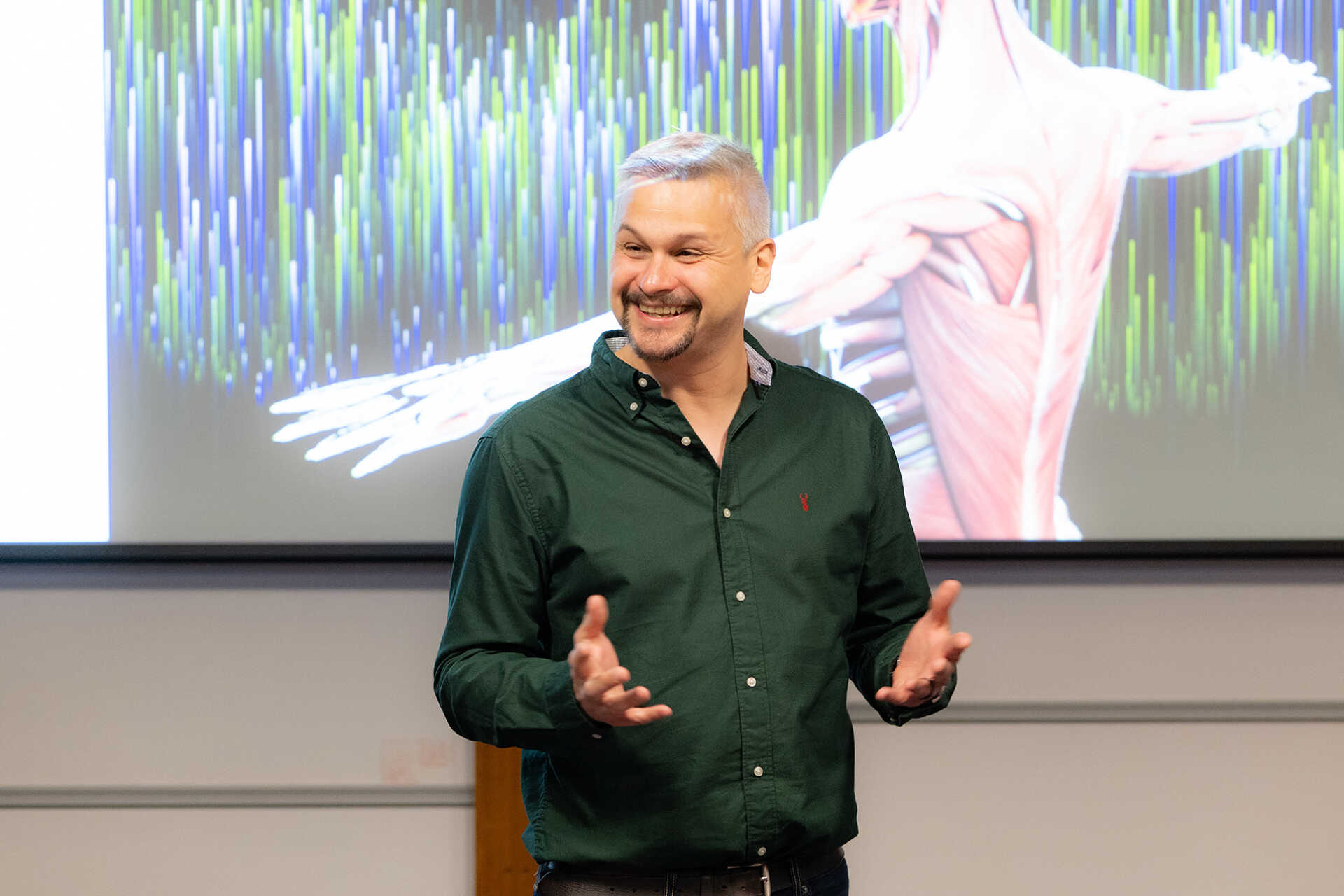
Be inspired by academics at the forefront of their fields including biological, environmental, and evolutionary anthropology, as well as Biology and Psychology.
The University will consider applications from students offering a wide range of qualifications. Click below to find out more. Please also see our general entry requirements.
BBB including at least one of Human Biology, Biology, Psychology, Chemistry or Mathematics. Applicants with an A level (or equivalent) in Health and Social Care, Sports Science, or Physical Education will also be considered.
We will consider applicants holding BTEC National Diploma and Extended National Diploma Qualifications (QCF; NQF; OCR) on a case-by-case basis. Please note that subjects such as Hospitality, Catering, Art & Design, Music, Photography and Dance will not be accepted. Please contact us for further advice on your individual circumstances.
30 points overall or 15 points at HL including mathematics 4 at HL or SL.
Mathematics grade C/4
Pass all components of the University of Kent International Foundation Programme with a 60% overall average including 60% in LZ036 Academic Skills, 60% in LZ045 Life Sciences (1 & 2), and 50% in LZ013 Maths and Statistics (if you do not hold GCSE Maths at 4/C or equivalent).
The University will consider applicants holding T level qualifications in subjects closely aligned to the course.
The University welcomes applications from Access to Higher Education Diploma candidates for consideration. A typical offer may require you to obtain a proportion of Level 3 credits in relevant subjects at merit grade or above.
The following modules are offered to our current students. This listing is based on the current curriculum and may change year to year in response to new curriculum developments and innovation:
Compulsory modules currently include:
BIOS3050 - Fundamental Human Biology (15 credits)
ANTB3020 - Foundations of Biological Anthropology (30 credits)
ANTS3080 - Academic and Research Skills (15 credits)
PSYC3040 - Introduction to Psychology I (15 credits)
PSYC3050 - Introduction to Psychology II (15 credits)
Optional modules may include:
BIOS3070 - Human Physiology and Disease (15 credits)
BIOS3000 - Introduction to Biochemistry (15 credits)
SPOR3270 - Introduction to Biomechanics (15 credits)
Up to 15 credits can be taken from Stage 1 elective Modules
Compulsory modules currently include:
ANTB5590 - Quantitative Research Methods (15 credits)
ANTB5650 - Sex, Evolution, and Human Nature (15 credits)
ANTB6280 - Human Skeletal Biology (15 credits)
ANTB6250 - Homo sapiens: Biology, Culture and Identity (15 credits)
SE629 - Human Anatomy and Movement (15 credits)
45 credits of optional modules may include:
ANTB6050 - Hormones and Behaviour (15 credits)
ANTB5800 - Primate Behaviour and Ecology (15 credits)
ANTB5820 - Comparative Perspectives in Primate Biology (15 credits)
ANTB5490 - Medical Anthropology: Cause and consequences of Illness (15 credits)
PSYC6370 - Forensic Psychology: Theoretical and Applied Perspectives (15 credits)
PSYC6080 - Evolution & Universal Motivation (15 credits)
BIOS5460 - Animal Form and Function (15 credits)
BIOS5030 - Cell Biology (15 credits)
BIOS5050 - Infection and Immunity (15 credits)
BIOS5130 - Human Physiology and Disease 2 (15 credits)
PSCI5020 - Forensic Archaeology (15 credits)
WCON5030 - Evolutionary Genetics and Conservation (15 credits)
You have the opportunity to select 15 credits of elective modules in this stage.
Compulsory modules currently include:
ANTB5330 – Independent Research Project (30 credits)
ANTB5700 – Life, Sex, and Death: Current Debates in Human Biology and Behaviour (15 credits)
At least 30 credits of optional modules may include:
ANTB5410 - Palaeoanthropology (15 credits)
ANTB5800 - Primate Behaviour and Ecology (15 credits)
ANTB5820 - Comparative Perspectives in Primate Biology (15 credits)
ANTB5690 - Palaeopathology (15 credits)
ANTB5570 - Primate Communication (15 credits)
ANTB6050 - Hormones and Behaviour (15 credits)
ANTB6090 - Forensic Anthropology (15 credits)
45 credits of optional modules may include following:
ANTB5490 - Medical Anthropology: Cause and consequences of Illness (15 credits)
BIOS5460 - Animal Form and Function (15 credits)
PSYC6080 - Evolution & Universal Motivation (15 credits)
PSYC6370 - Forensic Psychology: Theoretical and Applied Perspectives (15 credits)
PSYC6030 - Groups in Actions (15 credits)
WCON5030 - Evolutionary Genetics and Conservation (15 credits)
LAWS5840 - Forensic Science in Criminal Trials (15 credits)
You have the opportunity to select 15 credits of elective modules at this stage. Students must ensure they have taken at least 90 credits at Level 6 in Stage 3.
Our teaching is research-led as all our staff are active in their fields. Staff have been awarded national teaching awards, reflecting the quality of the undergraduate programmes.
Human Biology and Behaviour at Kent uses a stimulating mix of teaching methods, including lectures, small seminar groups, field trips and laboratory sessions. For research project work, you are assigned to a supervisor with whom you meet regularly. You also have access to a wide range of learning resources, including the Templeman Library, research laboratories and computer-based learning packages.
Many of the core modules have an end-of-year examination that accounts for 50% to 100% of your final mark for that module. The remaining percentage comes from practical or coursework marks. However, others, such as the Independent Research Project or Human Skeletal Biology, are assessed entirely on coursework. Both Stage 2 and 3 marks count towards your final degree result.
For a student studying full time, each academic year of the programme will comprise 1200 learning hours which include both direct contact hours and private study hours. The precise breakdown of hours will be subject dependent and will vary according to modules. Please refer to the individual module details under Course Structure.
Methods of assessment will vary according to subject specialism and individual modules. Please refer to the individual module details under Course Structure.
For course aims and learning outcomes please see the course specification.
Studying human biology and behaviour gives you an exciting range of career opportunities. We work with you to help direct your module choices to the career paths you are considering. Through your studies, you learn how to work independently, to analyse complex data and to present your work with clarity and flair.
You learn a set of skills that will allow you to pursue a career in areas such as:
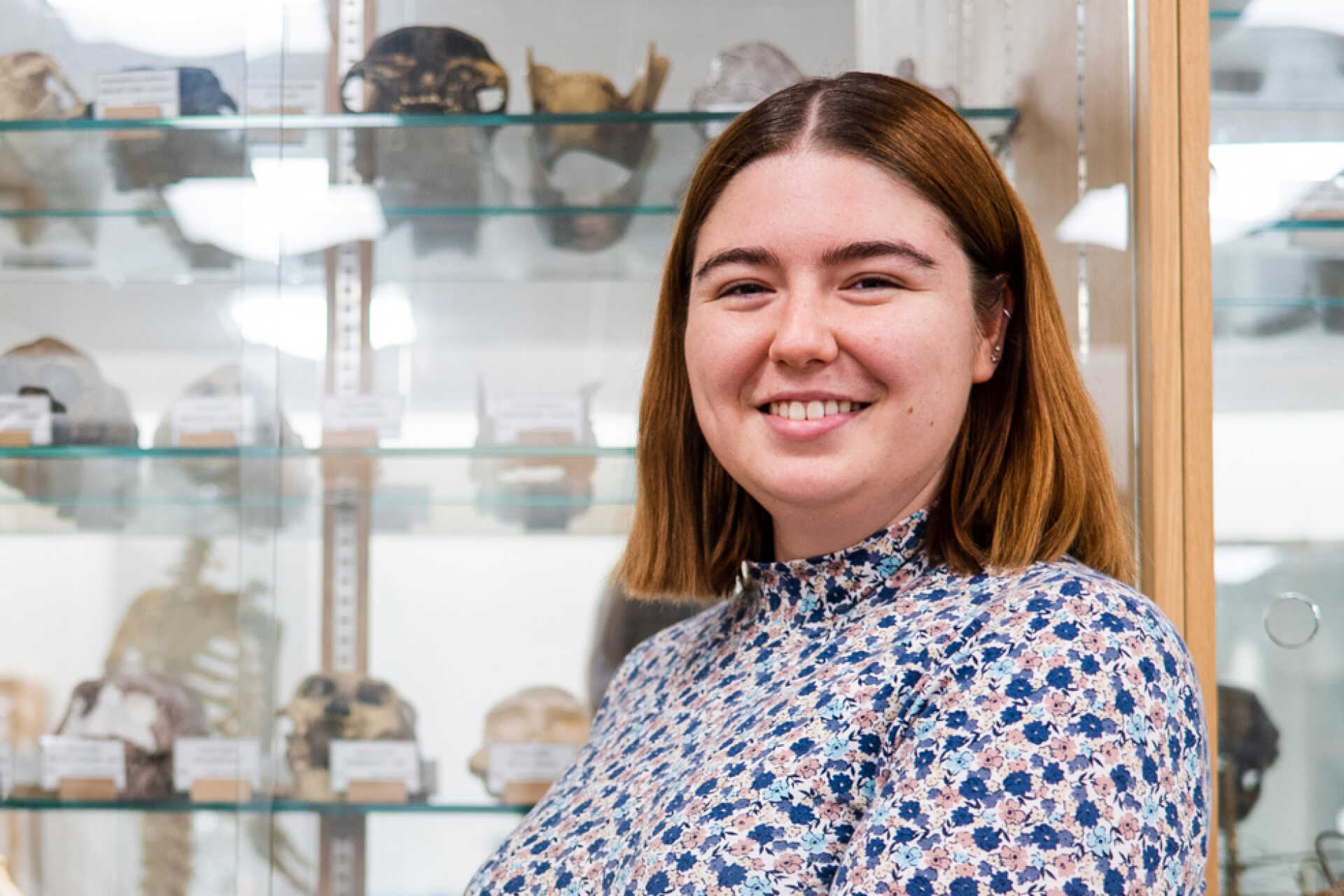

The 2023/24 annual tuition fees for this course are:
For details of when and how to pay fees and charges, please see our Student Finance Guide.
For students continuing on this programme, fees will increase year on year by no more than RPI + 3% in each academic year of study except where regulated.*
The University will assess your fee status as part of the application process. If you are uncertain about your fee status you may wish to seek advice from UKCISA before applying.
One day trips that are compulsory to a module are financially funded by the School. Optional or longer trips may require support funding from attendees.
Find out more about accommodation and living costs, plus general additional costs that you may pay when studying at Kent.
Kent offers generous financial support schemes to assist eligible undergraduate students during their studies. See our funding page for more details.
At Kent we recognise, encourage and reward excellence. We have created the Kent Scholarship for Academic Excellence.
The scholarship will be awarded to any applicant who achieves a minimum of A*AA over three A levels, or the equivalent qualifications (including BTEC and IB) as specified on our scholarships pages.

We have a range of subject-specific awards and scholarships for academic, sporting and musical achievement.
We welcome applications from students all around the world with a wide range of international qualifications.

Student life

Kent ranked top 50 in the The Complete University Guide 2023.
Kent Sport
Kent has risen 11 places in THE’s REF 2021 ranking, confirming us as a leading research university.

Accommodation